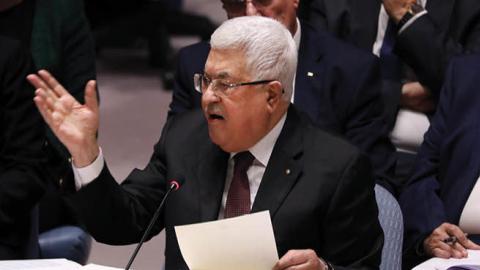As speculation intensifies over possible Israeli plans to annex portions of the West Bank, the Palestinian movement faces its greatest crisis since Israel became a state. The underlying problem for the Palestinian Authority is that the balance of power has shifted massively in favor of Israel, and as other countries recalibrate their policies in light of this reality, Palestinian options are narrowing faster than the authority’s leaders can adapt.
Ever since they turned to the Arab countries to prevent the emergence of a Jewish state in the late 1940s, the Palestinians have needed the support of allies to even the scales against the Zionists. That need is more urgent and pressing today than ever, but allies are getting harder to find.
In the Middle East, two of the most important Arab states—Syria and Iraq—are so torn by internal strife that they can no longer project power beyond their borders. Egypt is too concerned with maintaining stability and nurturing a fragile economy to be interested in confrontations with Israel. The Gulf states are struggling with the oil-price implosion which, together with their rising populations and their fear of Iran, is dramatically curtailing their freedom of action even as their need for allies grows.
Read the full article in the Wall Street Journal

















